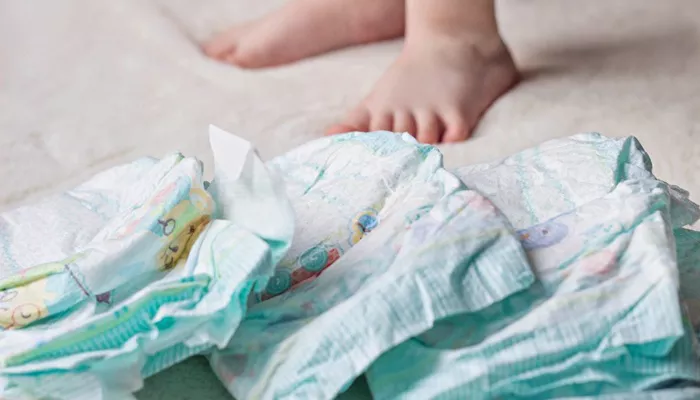Pampers, one of the most recognizable names in the diaper industry, is trusted by millions of parents worldwide. When purchasing diapers, a common concern is whether Pampers have an expiration date. This article aims to provide a thorough understanding of the lifespan of Pampers diapers, exploring their composition, storage conditions, and overall shelf life.
The Composition of Pampers Diapers
Pampers diapers are designed with a combination of materials to ensure they are absorbent, comfortable, and reliable. Key components include:
Absorbent Core:
The core is made of superabsorbent polymers (SAP) and fluff pulp. SAP can absorb and lock away moisture, while fluff pulp provides additional absorbency and cushioning.
Top Sheet and Back Sheet:
These layers are typically made from non-woven fabric, which is soft and breathable.
Elastic Waistbands and Leg Cuffs:
These features are designed for a snug fit and prevent leaks.
Each component is selected for its durability and effectiveness, contributing to the diaper’s overall lifespan.
Do Pampers Diapers Expire?
Pampers diapers do not have a traditional expiration date like food products. Instead, their effectiveness is influenced by factors such as:
Material Degradation:
Over time, the materials used in diapers can degrade. The absorbent polymers and fluff pulp may lose their effectiveness, leading to reduced performance.
Packaging Integrity:
The packaging of Pampers helps protect the diapers from moisture, dirt, and damage. If the packaging is compromised, the diapers may be affected.
Storage Conditions:
Proper storage is crucial to maintaining the quality of Pampers diapers.
Shelf Life and Best Practices
Shelf Life of Pampers Diapers
While Pampers does not specify a formal expiration date, it is generally recommended to use diapers within 2 to 3 years of purchase. This timeframe ensures that the diapers perform optimally and are free from potential degradation.
Best Practices for Storing Pampers Diapers
Keep Diapers in Their Original Packaging:
The packaging helps protect the diapers from external elements and maintains their quality.
Store in a Cool, Dry Place:
Excessive heat and humidity can affect the performance of diapers. Store them in a temperature-controlled environment to prevent moisture absorption.
Avoid Direct Sunlight:
Prolonged exposure to sunlight can weaken the materials and reduce the effectiveness of the diapers.
Check for Damage:
Regularly inspect the packaging and diapers for any signs of damage, such as tears or holes.
Signs of Degradation
If Pampers diapers are past their optimal usage period or have been stored improperly, you may notice the following signs:
Reduced Absorbency:
The diaper may not absorb moisture as effectively, leading to leaks.
Crumbly or Discolored Material:
The absorbent core or outer layers may show signs of breakdown or discoloration.
Unpleasant Odor:
A strong odor can indicate that the materials have deteriorated or been exposed to moisture.
SEE ALSO: What Is the Weight for Pampers Size 3?
How to Determine if Pampers Diapers Are Still Usable
To ensure that Pampers diapers are still suitable for use, consider the following:
Inspect the Packaging:
Ensure there are no signs of damage or compromised seals.
Check the Diapers:
Examine the diapers for any signs of material degradation or discoloration.
Perform a Test:
If in doubt, perform a test to see if the diaper maintains its absorbency.
Environmental and Safety Considerations
When it comes to diaper disposal, consider the following:
Follow Local Disposal Guidelines:
Dispose of used diapers according to local regulations to minimize environmental impact.
Avoid Flushing:
Diapers should not be flushed down the toilet as they can cause blockages and environmental harm.
Conclusion
Pampers diapers do not have a strict expiration date, but their effectiveness can diminish over time due to material degradation and improper storage. By following best practices for storage and regularly checking the condition of your diapers, you can ensure they remain effective and safe for use. Proper care and attention to storage conditions can help maximize the lifespan of Pampers diapers, providing reliable protection for your baby.
This comprehensive understanding of Pampers’ shelf life and storage practices will help parents make informed decisions and ensure their little ones remain comfortable and dry.
FAQs
Can We Use Expired Pampers?
Technically, Pampers diapers do not expire in the traditional sense. However, using diapers that are past their optimal usage period (usually 2 to 3 years from the date of purchase) might result in reduced performance. The materials in the diaper, such as the absorbent core and elastic bands, may degrade over time, leading to issues like reduced absorbency, leaks, or a less secure fit. If the diapers show signs of damage, discoloration, or a strange odor, it’s best not to use them.
How Long Do Pampers Baby Dry Diapers Last?
Pampers Baby Dry diapers, like other Pampers products, do not have a formal expiration date. However, they are best used within 2 to 3 years of purchase. After this period, the diaper’s materials might start to degrade, potentially affecting their absorbency and overall performance. Proper storage in a cool, dry place can help extend the diaper’s effectiveness.
Do Pampers Baby Wipes Expire?
Pampers Baby Wipes generally have a shelf life of about 2 to 3 years. Unlike diapers, wipes are more prone to drying out or becoming less effective if stored improperly. Always keep them sealed in their original packaging and store them in a cool, dry place. If the wipes dry out or develop an unusual smell, it’s best to discard them and use a fresh pack.
When Should I Stop Using Pampers?
You should stop using Pampers diapers when your child no longer needs diapers, which typically occurs during the potty training phase. Additionally, you should stop using Pampers if they show signs of wear and tear, or if they no longer fit your child comfortably and securely. If you notice any skin irritation or discomfort, it might be time to switch to a different size or brand. Always ensure the diapers you use are in good condition to avoid leaks and skin issues.


